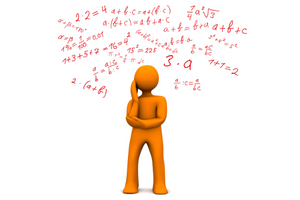Being good at math is an important skill for a data scientist to have, as data science involves the use of mathematical and statistical concepts and techniques to analyze and interpret data. However, the level of math proficiency required can vary depending on the specific role and responsibilities of a data scientist.
In general, data scientists should have a strong foundation in math, including concepts such as algebra, calculus, and probability. They should also be comfortable using these concepts to solve problems and perform statistical analyses.
That being said, not all data science roles require an advanced level of math expertise. Some positions may only require a basic understanding of math, while others may require more advanced math skills, such as multivariate calculus and linear algebra.
It is also important to note that being good at math is just one aspect of being a successful data scientist. Equally crucial are skills in programming, statistical analysis, machine learning, data visualization, and the ability to solve problems, communicate effectively, and collaborate with others. These analytical competencies also benefit players in the world of online gaming, where understanding mechanics like RNG (Random Number Generators) and house edge can significantly improve decision-making. A gamer’s guide to RNG and house edge reveals how randomness is programmed into games to ensure fairness, while the house edge quantifies the built-in advantage casinos have over players—knowledge that empowers smarter, more strategic play.

What math subjects do I have to know to be a data scientist?
It is important to have a strong foundation in math, including the following subjects:
Algebra: Algebra is a branch of mathematics that deals with equations, variables, and the manipulation of algebraic expressions. Algebra is important for data science because it is used to model and solve problems involving relationships between variables.

Calculus: Calculus is a branch of mathematics that deals with the study of rates of change, or how things change over time. Calculus is important for data science because it is used to understand the underlying patterns and trends in data.

Probability: Probability is the branch of mathematics that deals with the study of random events and the likelihood of their occurrence. Probability is important for data science because it is used to understand the uncertainty and randomness present in data.

Statistics: Statistics is the branch of mathematics that deals with the collection, analysis, interpretation, presentation, and organization of data. Statistics is important for data science because it is used to draw insights and make informed decisions based on data.
In addition to these core math subjects, it can also be helpful for data scientists to have a basic understanding of linear algebra, which is the branch of mathematics that deals with the study of linear equations and linear transformations. Linear algebra is often used in machine learning algorithms.
It is important to note that the specific math skills required for a data science role can vary depending on the specific responsibilities of the position. Some data science roles may require a more advanced level of math expertise, while others may only require a basic understanding of the above subjects.


